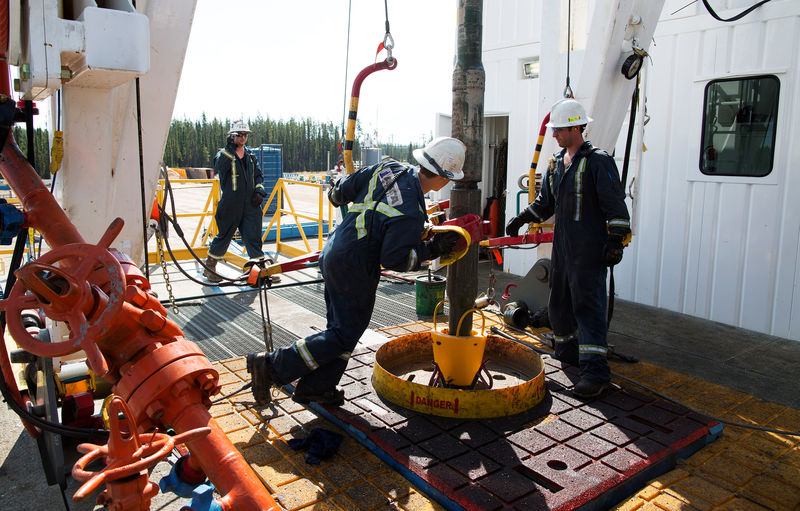By Peter Nurse
Investing.com -- Oil prices retreated Thursday, handing back some of the week’s strong gains in thin holiday-affected trading after the release of a larger-than-expected build in U.S. oil stocks.
By 9:20 AM ET (1320 GMT), U.S. crude futures traded 1.6% lower at $102.62 a barrel, while the Brent contract fell 1.5% to $107.16 a barrel. Both benchmarks are still on course for gains of around 7% this week, with Friday closed for the Easter holiday.
The oil market has seen strong trading this week, boosted by news that China, the world’s largest importer of crude, has begun easing movement curbs for some residents in its financial hub, Shanghai. The country has been suffering its largest outbreak of Covid cases since the initial burst in 2019.
The tone has turned negative following the release of data from the Energy Information Administration on Wednesday, which showed that U.S. oil stocks rose more than 9 million barrels last week, substantially more than expected, raising concerns about demand in the world’s largest consumer.
Still, the war in Ukraine shows no signs of letting up. President Joe Biden announced $800 million in additional U.S. military aid for Ukraine and the European Union, agreeing to provide more cash for weapons as Russia repositions its forces for renewed attacks.
“Clearly, the longer this lasts, the more pressure on EU members to act, and having targeted coal in the last round of sanctions, oil could very well be included in the next round,” said analysts at ING, in a note.
The Organization of Petroleum Exporting Countries warned earlier in the week that losses from Russian sources due to sanctions could be as much as seven million barrels per day, and that volume would be “impossible” to replace even if the cartel members did decide to increase their output substantially.
There is also the possibility of further disruption to the European energy market after an internal European Commission note stated that payment for Russian gas in rubles by European Union buyers would break the EU's sanctions regime against Moscow.
This could mean that EU gas buyers are no longer able to buy Russian gas if Vladimir Putin confirms the stance he adopted in late March in an attempt to boost his country’s struggling currency.
European Union leaders are set to discuss common gas purchases at a summit late next month as they seek to avoid competing against each other for alternative energy supplies in the effort to phase out purchases from Russia.
